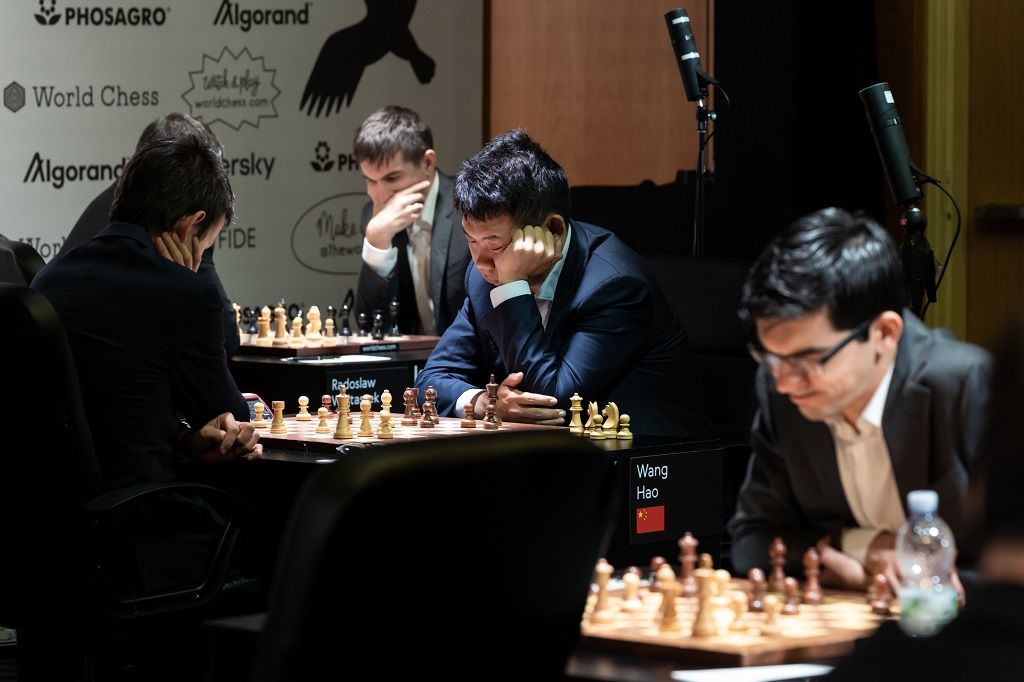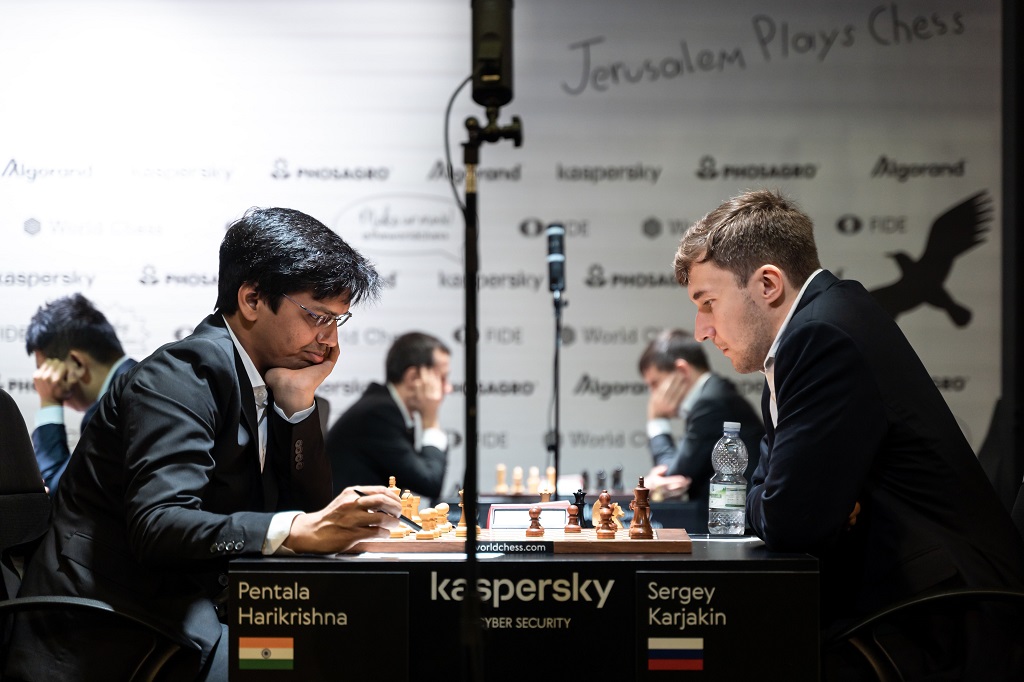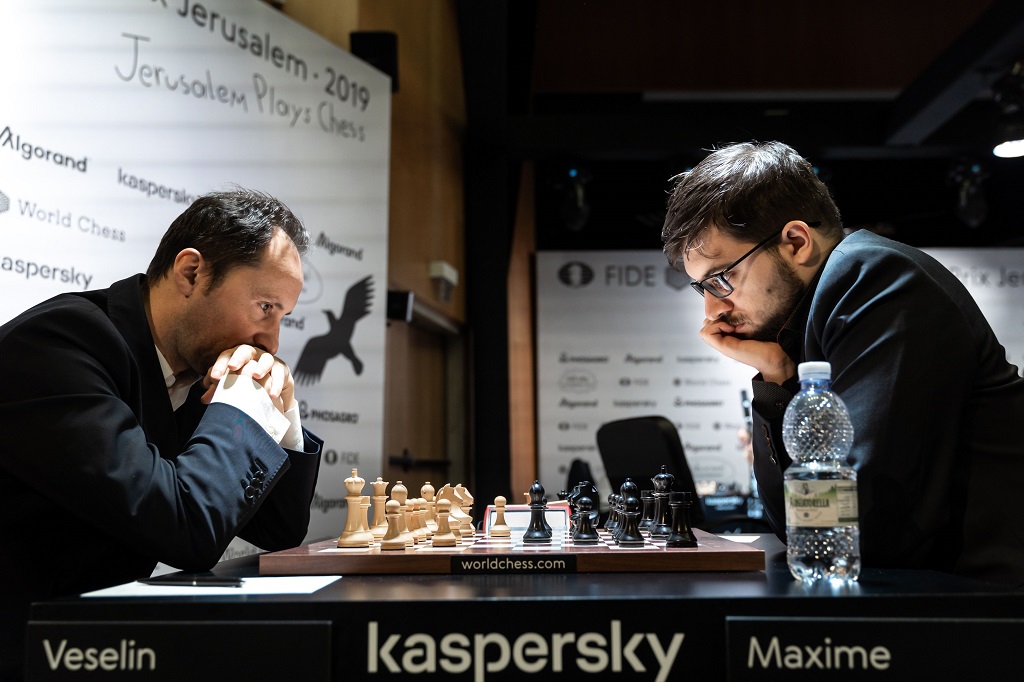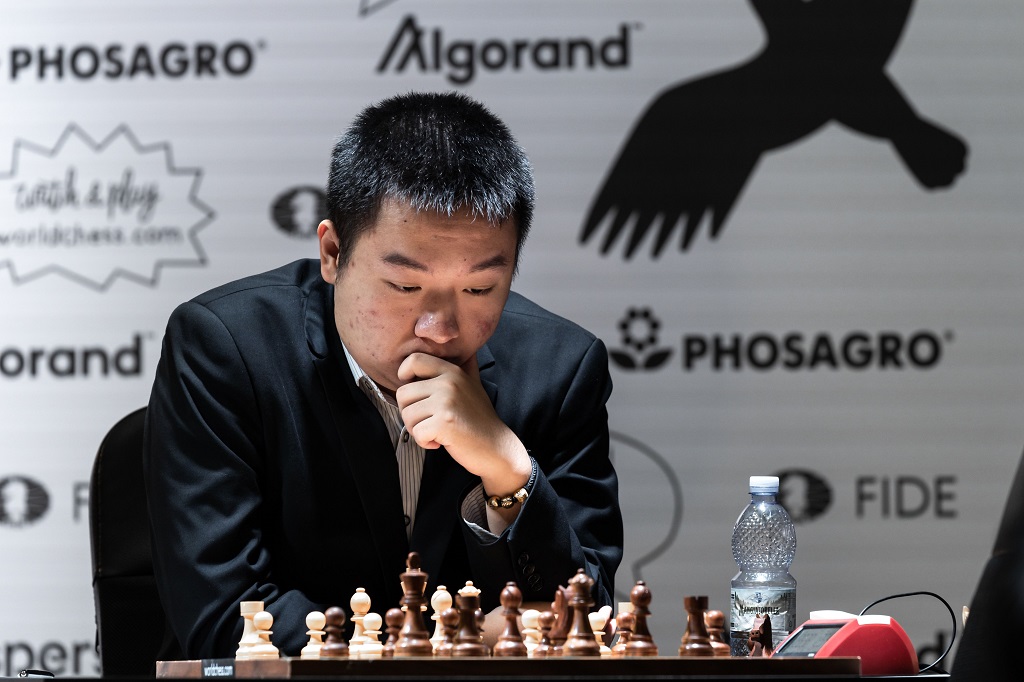


ChessBase 17 - Mega package - Edition 2024
It is the program of choice for anyone who loves the game and wants to know more about it. Start your personal success story with ChessBase and enjoy the game even more.
 The fourth leg of the FIDE Grand Prix is being played in Jerusalem, Israel. The 16-player knockout has a €130,000 prize fund, with the series as a whole having an additional prize fund of €280,000 plus two qualifying spots for the 2020 Candidates Tournament. The tournament takes place in the Notre Dame of Jerusalem Centre from December 11th to 23rd.
The fourth leg of the FIDE Grand Prix is being played in Jerusalem, Israel. The 16-player knockout has a €130,000 prize fund, with the series as a whole having an additional prize fund of €280,000 plus two qualifying spots for the 2020 Candidates Tournament. The tournament takes place in the Notre Dame of Jerusalem Centre from December 11th to 23rd.
At the opening ceremony of the Jerusalem Grand Prix, Emil Sutovsky mentioned that there are still twelve participants with chances to get one of the two spots in the Candidates. And he was right. For most of them, however, the probabilities to get a miraculous qualification heavily depends on them going through round one while all three favourites — Maxime Vachier-Lagrave, Shakhriyar Mamedyarov and Ian Nepomniachtchi — get eliminated in the same round. FIDE press officer Anastasiya Karlovich asked Sergey Karjakin if he believes in miracles. He responded:
I believe in miracles, but I completely don't believe in my chances (laughs).
All games on opening day finished drawn, with both Mamedyarov and Nepomniachtchi failing to make the most of their games with White, so for those with slim chances there is no reason to completely lose hope at this point...
Master Class Vol. 12: Viswanathan Anand
This DVD allows you to learn from the example of one of the best players in the history of chess and from the explanations of the authors how to successfully organise your games strategically, consequently how to keep your opponent permanently under press

Harikrishna v Karjakin with Wojtaszek v Andreikin in the background | Photo: Niki Riga
The ever-present controversy regarding quick draws in elite tournaments is still very much alive among chess fans, and two of the games on Wednesday finished without literally any fight. Pentala Harikrishna and Karjakin played 20 moves of theory in a Berlin Defence before splitting the point, while Ian Nepomniachtchi and Boris Gelfand moved 10 times each before agreeing to a draw.
Harikrishna, who had the white pieces against Karjakin, explained that he was tired as he had just arrived in Jerusalem a day before, while Gelfand was as surprised as the spectators by Nepomniachtchi's decision. The Israeli declared:
I'm very surprised, because with Black I played my normal opening and he played a well-known theoretical line, and I think he already quite misplayed it — I think the final position is a very dry position, when none of the sides has real chances to fight for anything.
Of course, Nepomniachtchi must have his reasons for calling it a day so early. He, as many other top grandmasters, had a jam-packed schedule throughout the year, so tiredness might have also been a factor. Moreover, keeping energy for the remaining rounds is particularly important for the Russian, who is fighting to qualify to his first-ever Candidates Tournament.

Nepomniachtchi stopped trying early on against Boris Gelfand | Photo: Niki Riga
The pairings at this year's Grand Prix events were decided by drawing of lots, with the only condition being that the four top seeds were to be placed into different quarters of the bracket. Given the random nature of the procedure, it is curious that Maxime Vachier-Lagrave and Veselin Topalov faced each other three times, in Riga, Hamburg and now in Jerusalem — it is already a coincidence that both players skipped the Moscow stage. While in Latvia and Germany they met in round two (after Topalov took down Hikaru Nakamura both times!), they were directly paired up in the first round in Israel.
Their previous inaugural encounters finished in favour of the Frenchman, who then went on to win the match-ups. Both times, Topalov played with White first, much like in Jerusalem, except that he finally managed not to lose. As he pointed out, he had tried 1.e4 in Riga and 1.d4 in Hamburg — to keep the sequence going, he now opted for 1.c4.
Vachier-Lagrave later mentioned that his position "was very suspicious at some point". Luckily for him, however, his opponent missed some chances to increase his advantage during the middlegame. In the final sequence of the game, the French GM gave up a piece:
Marin's English Love Vol.1 and 2 - A complete repertoire for White after 1.c4
The aim of these Dvd's is to build a repertoire after 1.c4 and 2.g3 for White. The first DVD includes the systems 1...e5, the Dutch and Indian setups. The second DVD includes the systems with 1...c5, 1...c6 and 1...e6.
'MVL' had just played 30...h4, aware of the fact that the ensuing forced variation would result in the loss of his knight on f6. The game continued 31.cxb6 hxg3+ 32.♔h1 ♛xb6 33.♖c6 ♛xd4.
The queens were exchanged and the draw was signed shortly after — 34.♕xd4 ♜xd4 35.♖cxf6 ♜e7 36.♖6f3. Perhaps Topalov could have kept pushing, but he decided to end the game right there and then. Vachier-Lagrave confessed:
It is tough, but it's been tough for most part of the year. At some point I just got into the rhythm and of course my condition was much worse after the end of Khanty-Mansiysk, in the World Cup.

Veselin Topalov had a better position against Maxime Vachier-Lagrave | Photo: Niki Riga
In the meantime, Anish Giri was playing a Sicilian Najdorf against Wei Yi. The Dutchman mixed some lines in the opening and incorrectly gave up an exchange on move 18:
When choosing an opening repertoire, there are days when you want to play for a win with Black, when you want to bear down on your opponent’s position with a potentially crushing attack. The Najdorf is perfect for just such occasions. Strategy, combinations, attack and defence, sacrifices and marvellous manoeuvres — exciting chess is all about the Najdorf!
Giri remembered that 18...♜xb6 was good for Black, except that that is the case in a different variation. Wei Yi was clearly the one on top due to his material edge, but once the queens left the board, he had to deal with Black's strong bishop pair. Giri, who currently is the eighth highest ranked player in the world, defended accurately and finally pushed the Chinese prodigy to give up trying on move 58.

Wei Yi | Photo: Niki Riga
Fritz 17 - The giant PC chess program, now with Fat Fritz
The most popular chess program offers you everything you will need as a dedicated chess enthusiast, with innovative training methods for amateurs and professionals alike.
Official broadcast with GM Evgeny Miroshnichenko via worldchess.com